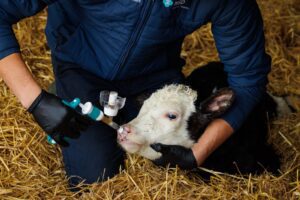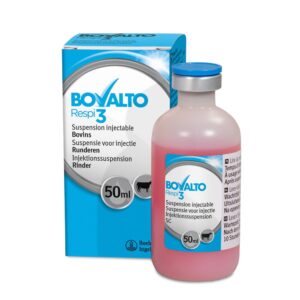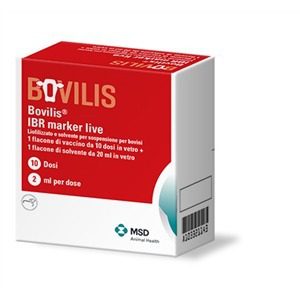Pneumonia

Calf pneumonia or Bovine Respiratory Disease (BRD) is a complex, multi-factorial disease which results in inflammation and damage to the tissues of the lungs and respiratory tract. It is the most common reason for poor performance and death in growing calves
What Causes Pneumonia in cattle?

Any of these pathogens can contribute to calf pneumonia but mixed infections are also common. It’s important to work with your vet to diagnose the cause of pneumonia accurately and re-test regularly because pathogens can change over time.
Pneumonia Stress Factors
Some of these pathogens live in the calf’s respiratory tract without causing disease, but when the calf is stressed or immunocompromised they can become pathogenic, causing pneumonia. Environmental or management factors can cause stress and directly impact the susceptibility of calves to disease as well as its spread and volume.
Factors known to have a significant impact on calf pneumonia:
- Sick animals not being isolated
- Mixing different age groups of calves
- Transport stress
- Sudden changes in diet (e.g. weaning)
- Exposure to draughts
- Overstocking
- Inadequate ventilation
- Extremes of temperature
- Poor hygiene/drainage
- Poor access to feed, inadequate amount of feed or sudden changes in feed composition (including weaning)
- Too many interventions at once i.e. weaning at the same time as disbudding causing stress
The early signs of pneumonia can be difficult to spot even for the most experienced herdsmen. An elevated temperature (above 39.5°C) is the first sign of pneumonia taking hold, which can occur days before other clinical signs.
Preventing Pneumonia
The RUMA Targets Task Force has identified calf pneumonia as a key disease area in which to reduce the use of antibiotics. Preventing pneumonia taking hold is the best way of reducing antibiotic use.
The aim of pneumonia prevention is to support a calf’s immune system and reduce exposure to stress through good husbandry. While the risk of disease can never be fully eliminated, implementing preventive measures can reduce the impact of disease.
Focus areas to increase resistance to pneumonia:
- Good colostrum management
- Vaccination
- Low stocking density
- Low housing humidity
- Adequate ventilation
- Avoiding extremes of temperature
- Good nutrition
- Separating age groups
- Sound hygiene
- Minimising stress when transporting or weaning

Vaccination
Vaccination is a cost-effective tool to help protect against pneumonia by increasing an individual calf’s immunity and reducing the amount of circulating pathogens in the environment.
We recommend the use of:
Contact us today to discuss your vaccine plan with one of our vets
Templepatrick: 07508 999 579
Clogher: 028 8556 9117


